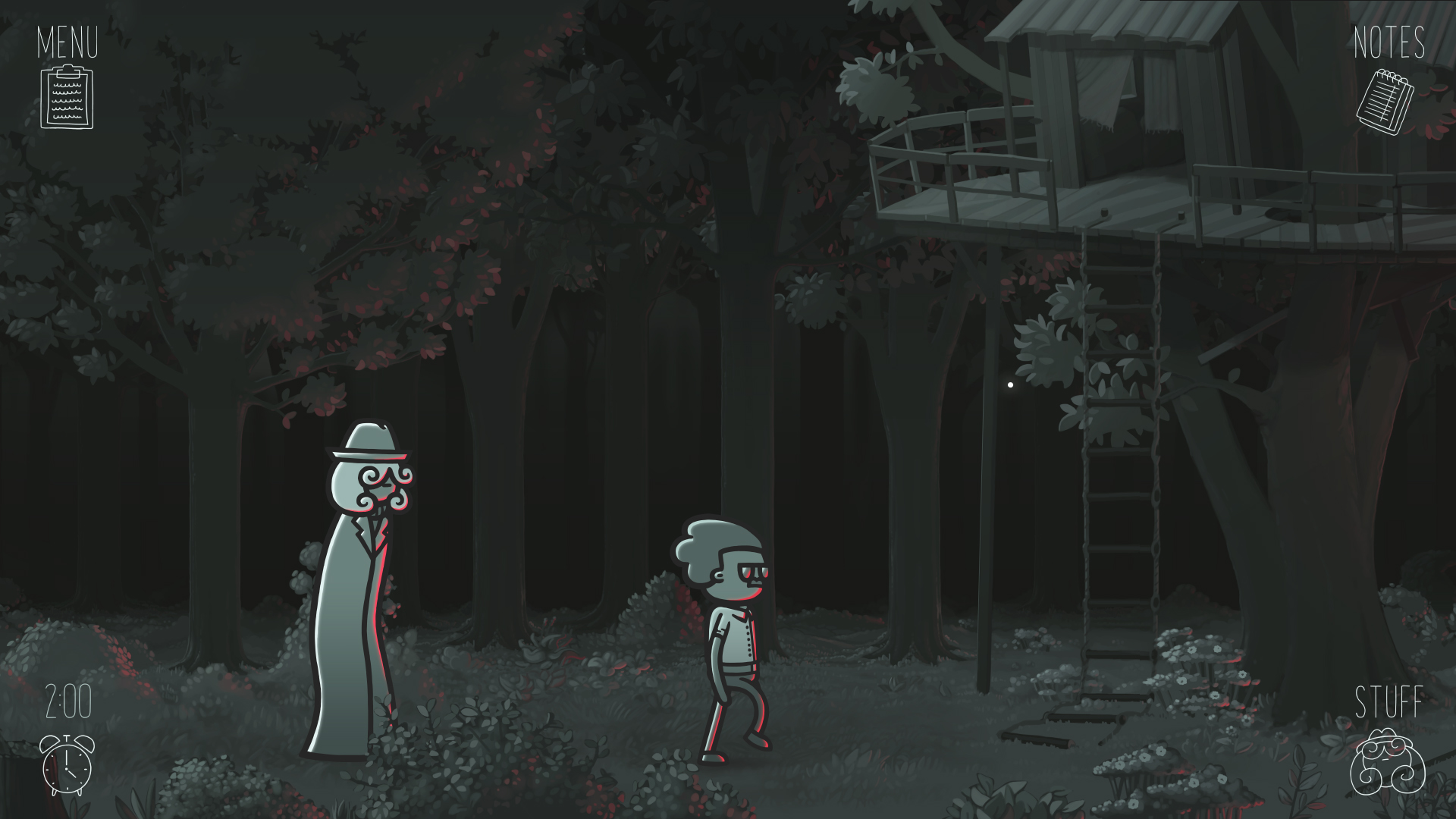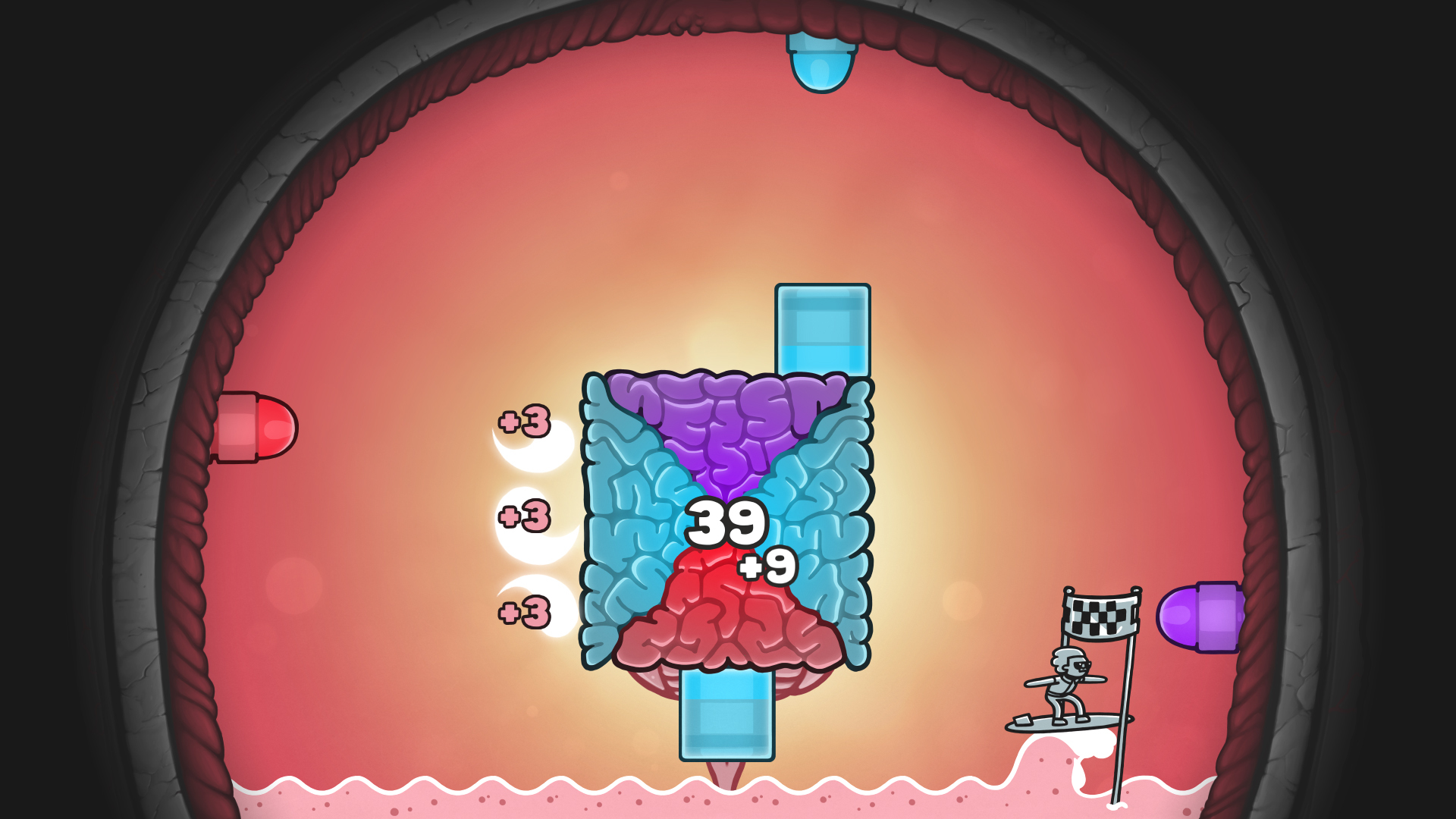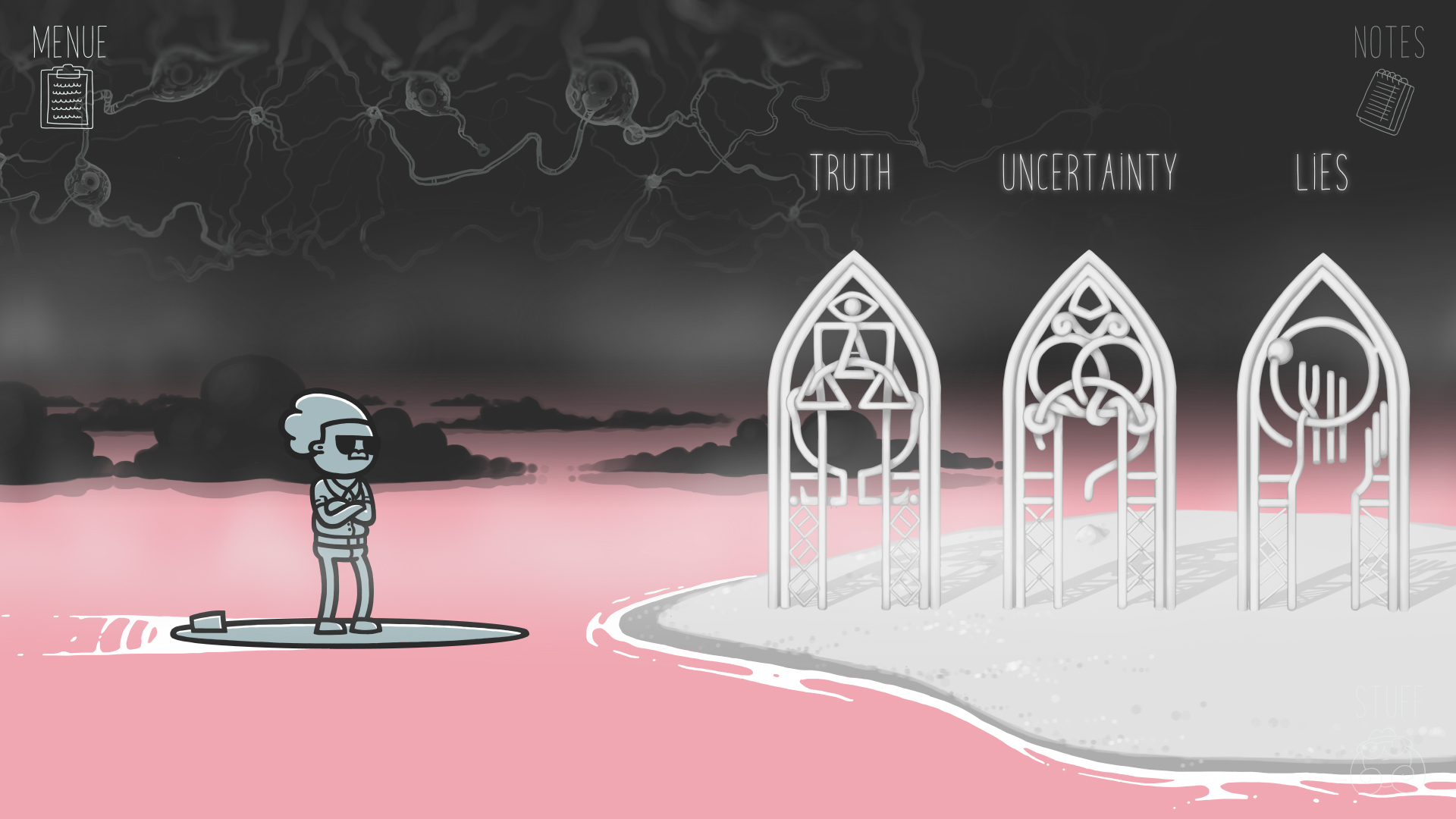Mixing and matching genres in video games is always an exciting notion, often creating innovative experiences that stand out amongst their competitors. You have the likes of Portal that mixes FPS-type gameplay with puzzles and platforming, and most famously, Nier Automata, which combines hack and slash and shoot-em-up play styles. These games are revered for the execution of their creativity, but it can be a thin line to cross as a developer must ask themselves whether the combination of genres is to the game’s benefit and enhances the experience.
With this in mind, I delved into Mindcop, a ‘whodunnit’ detective game where you play as the titular Mindcop and his partner Linda, investigating the recent murder of Rebecca Goodman.
Unique to this game is its emphasis on time as a game mechanic; you begin the day with 7 hours to investigate and do all your detective business, and every action, no matter big or small, will cost you time, forcing the player to strategize and figure out their game plan with the limited resources they discover. This was both a clever and frustrating gimmick, as more often than not the object you chose to investigate was completely worthless, and the game doesn’t shy away from telling you this. You think that a simple 3-minute check of a bin won’t matter, but it’s the little things that build up. Some objects take up time to investigate but add a bonus deduction if you want to search them thoroughly. I remember entering a suspect’s attic bedroom to find piles of forgotten objects and furniture, which took me 30 minutes to rummage through, only to yield no results! This in itself is part of the challenge of Mindcop, but can also often frustrate the player in its commitment to this element.
The main reason for this frustration is the penalty you receive for entering people’s houses, which often deducts 30-40 minutes of your time. I guess it stops you from flitting in and out of properties, but once I delved deeper into the mystery and began piecing clues together, I would often forget a minor detail I didn’t check or a topic I didn’t ask a witness about. This was a particularly harsh blow whenever it happened, and it kind of made me wish the game allowed you to freely move in and out of a property if you had already visited it that day. But to its credit, it did make the mystery all that more tantalizing and the search more pressuring.
You can also allocate tasks to your sidekick Linda and the forensic team, tasks that take up one or two days to complete, like searching Rebecca’s computer or having a suspicious white substance analyzed. These results are often important to your search which is reflected by the large time consumption. Another fun mechanic is the use of search warrants; every day you can use one warrant for one house where you are free to snoop around in bedrooms and private belongings. However, this doesn’t come without consequence as this violation of privacy can anger suspects in to not wanting to speak to you, so plan wisely.
Time reaches every corner of Mindcop as you interrogate witnesses, inquiring them about certain topics you have learned about, like an argument between two characters or the history behind Merrilyn Crater Camp. Topics, like objects, can give you absolutely nothing regarding the investigation, but it’s in the use of Mindsurf that you can unravel some particularly deep secrets and was definitely the feature of this game that captured me the most. Obviously, the cast of Mindcop is shaken up by its resident’s murder and they don’t particularly want to get involved, so they hide their secrets. Your superpower is the ability to uncover them through a funky real-time puzzle minigame where you shoot colored bullets into a brain you can rotate to make patterns—yes, it is Candy Crush. The puzzle is set to a timer, and if it runs out, you fail. These mind surfs are relatively simple and don’t require much strategy, but they ramp up in difficulty when you want to interrogate key witnesses. Obviously, this singles out characters that play a bigger part in the story so you know who to work towards, but to have a chance at a Mindsurf, you will have to upgrade your bullets by interrogating others. This isn’t to say they are useless suspects, but they act as stepping stones to the answers you seek. I feel like this gimmick can be a love or hate aspect of Mindcop. I personally didn’t mind it, but I can see why others would think it’s disjointed; it feels a bit random, but I guess, why not!
Once you execute a successful Mindsurf, you are provided with three doors to a suspect’s mind: a Truth, a Lie, and an Uncertainty. These present an interpretative scenario, some clearer than others. For example, Rebecca’s mom believes she is being burgled and stalked by men in black masks; this is revealed to be a delusion. However, her truth is that she mistreats her disabled husband Paul, who is rendered mute by his condition. The uncertainty is where the plot truly thickens, with some delectable possibilities of what they mean and if they are real or not. The interpretative scenarios are so well done, and I was excited in seeing everyone’s due to how stylized and interesting they were. They’re only snippets of the character’s mind, but they offer enough to know what type of person they are and what kind of role they have in the mystery.
Speaking of the style, Andre Gareis has done a wondrous job of bringing his game to life through its unique design. Characters are quirky and cartoonish, all with their own animations and expressions, and every main interaction has a unique animation to go with it, from questioning a witness to mindsurfing. Merrilyn Crater Camp’s black and white environments, bathed in a glow reminiscent of a rainy night noir story, set the perfect atmosphere for all the problems present.
Of course, when it comes to detective games, you want to know you’re getting involved in a good, meaty story, and I can happily report that the mystery weaves deep through its residents’ lives and doesn’t end up impossible or easily solved. Due to the nature of the game, you most likely won’t find your culprit in your first playthrough due to the amount of ground you have to cover, but that’s the whole point. You pick your suspect to arrest by the end of the week, and if you’re wrong, it results in a tragic ending. The week then resets, with all the information you gathered rolling over. It’s satisfying to cut out all the time-wasting you did and start to make Mindcop into a more constructed murder mystery that you are in control of.

























